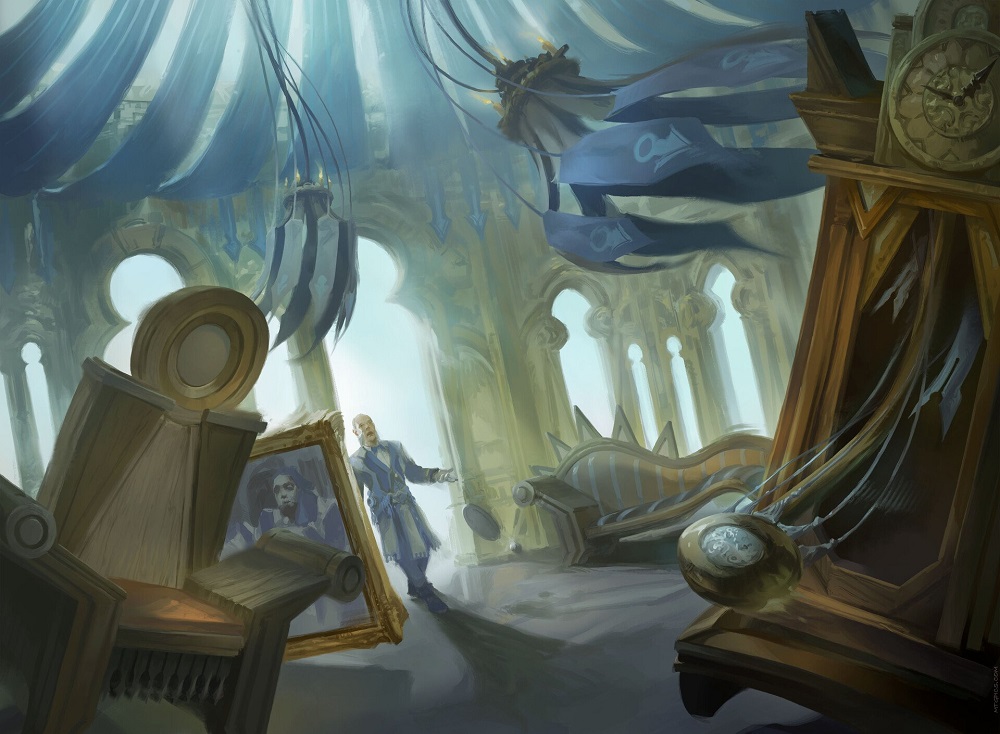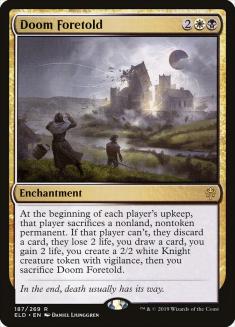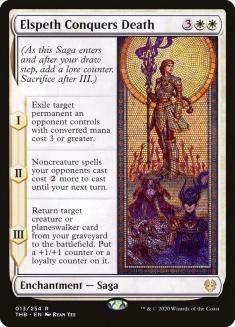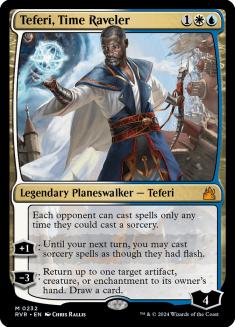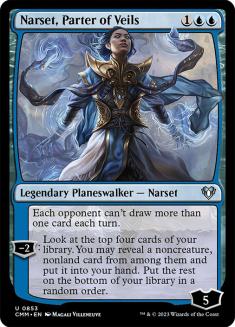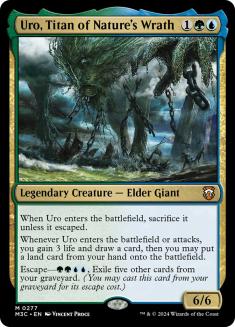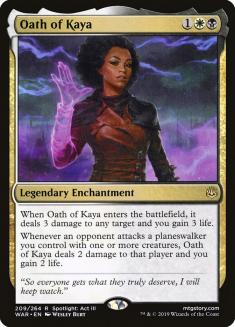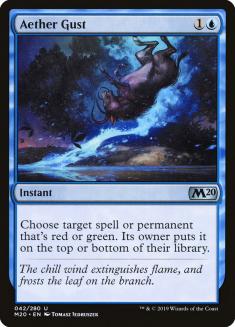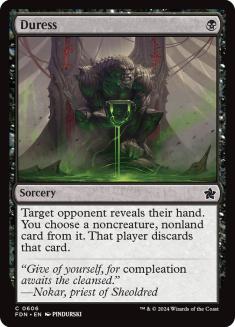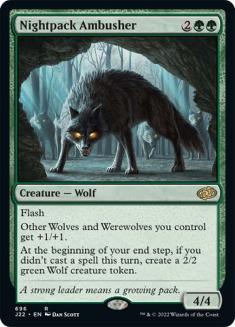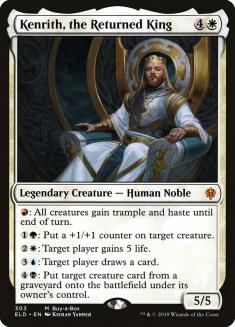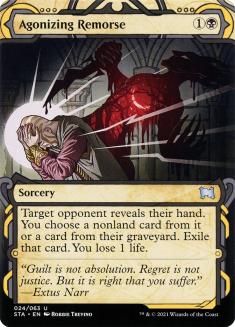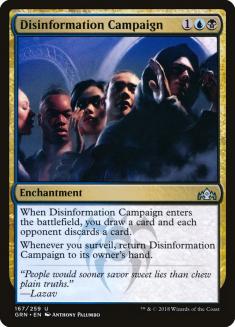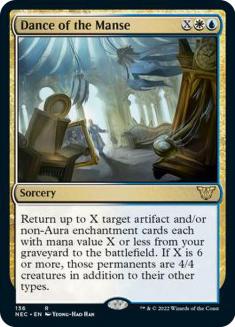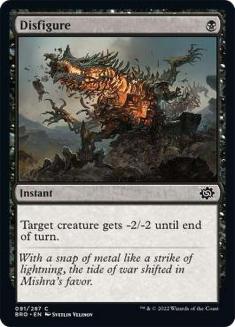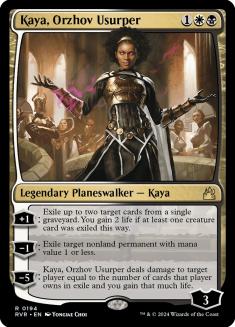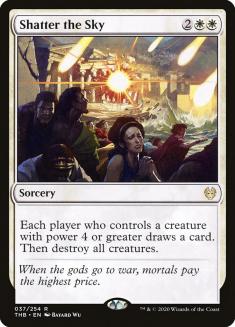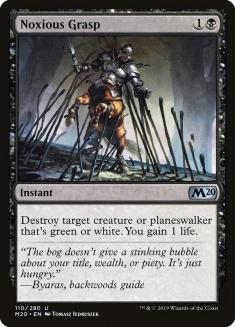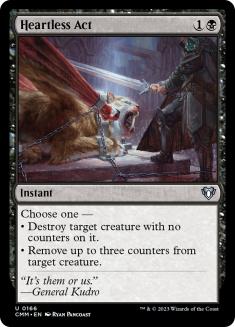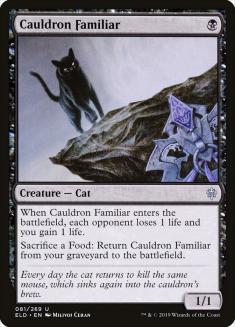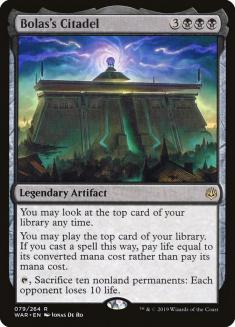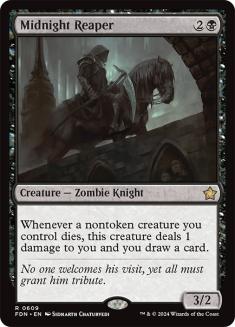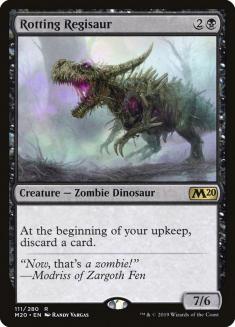Going into last weekend, the story of Standard could be summed up with “Play Growth Spiral, or do something to punk Growth Spiral decks out of the game while they’re playing a bunch of taplands.” It was a Temur-or-be-Temured world, with only Bant Ramp and the occasional Mono-X Aggro deck putting up much resistance.
Creatures (29)
- 4 Runaway Steam-Kin
- 3 Tin Street Dodger
- 4 Scorch Spitter
- 4 Robber of the Rich
- 4 Fervent Champion
- 4 Bonecrusher Giant
- 2 Torbran, Thane of Red Fell
- 4 Anax, Hardened in the Forge
Lands (22)
Spells (9)

In a good number of respects, Mono-Red Aggro in particular stole the show as the flashiest way to beat up on Temur Reclamation decks. Temur, after all, shifted towards the likes of maindeck Negate and zero Storm’s Wrath, creating a perfect combination of circumstances for a low-to-the-ground aggro deck to exploit.
That doesn’t tell the whole story of what people have been doing to attack the metagame over the last month or so.
Creatures (15)
Planeswalkers (5)
Lands (35)
Spells (25)
- 3 Mortify
- 4 Oath of Kaya
- 4 Doom Foretold
- 3 Glass Casket
- 4 Treacherous Blessing
- 4 Agonizing Remorse
- 3 Elspeth Conquers Death
Sideboard

Originally the brainchild of Eric Froehlich, this “Orzhov Yorion” deck was built to prey on the Bant Ramp decks that were using Teferi, Time Raveler and Narset, Parter of Veils to fight Temur. The problem?
It struggled against Temur Reclamation. Despite beating up on aggro decks and the “Level 2” deck of the format, beating the Explosion half of Expansion was nigh-impossible for a deck that wanted to leverage Burglar Rat.
Enter Montserrat Garcia:
Creatures (3)
Planeswalkers (8)
Lands (35)
Spells (34)

Known as hibananafish on Magic Arena, Montse has been tuning the deck for a while now, arriving on Esper Doom Foretold (Yorion) for the SCG Tour Online Season One Championship.
Why Esper?
Leaning to Esper, rather than Orzhov, allows the deck to have a real peanut butter-and-chocolate feel to how players are attacking the metagame.
To put it in other terms, it’s combining two different packages that people were already attacking the metagame with, and constructing a deck that can support them.
The anti-Bant side of the deck is largely unchanged, save for a de-emphasis on Burglar Rats. This deck is built around cards that outgrind anything trying to play a heads-up game of Magic, and these cards do exactly what they did previously — check planeswalkers and other snowball-y threats.
The new technology in this list is the natural inclusion of Teferi, Time Raveler and Narset, Parter of Veils. The two are obviously good cards in their own right, but in today’s Standard, they’re also two of the most difficult cards for Temur Reclamation to play through. Narset, Parter of Veils in particular is a card whose value has steadily risen since Core Set 2021‘s release. Why?
If Growth Spiral isn’t the single card that has defined Core Set 2021 Standard, it’s Uro, Titan of Nature’s Wrath. A developmental and game-ending tool wrapped in a single package, Uro has completely warped what’s playable. This is largely what encourages people to lean into strategies like the one-two punch of Wilderness Reclamation-into-Explosion. It’s hard to compete with the resources (in cards and life) that Uro provides without some sort of effect that goes so far over the top that it puts the game away.
Narset can check both of these cards. Nobody puts a set of Expansion in their deck hoping to build a Volcanic Geyser with a base cost of UURR, and Uro only putting lands onto the battlefield and gaining life isn’t really worth it as a Magic card.
This pseudo-Prison strategy is what a good chunk of players tried to do with Azorius Control throughout this format:
Creatures (6)
Planeswalkers (8)
Lands (26)
Spells (20)

The popularity of Mystical Dispute has mostly pushed expensive counterspells such as Absorb out of the format. The natural reaction is for control to lean more tap-out and less flash. Narset and Teferi are ways for these decks to preemptively “counter” the flavors of cards they turn off.
That being said, most of the rest of the deck is air and Yorion. Shatter the Sky is obviously a nice tool to have access against creature decks, but what if creatures aren’t the thing to be planning for?
Rather than acknowledge creatures, Esper Doom Foretold is attacking players’ ability to operate on the stack, and that’s where the most important fights in Core Set 2021 Standard are being fought right now. Explosion, Aether Gust, and so on are all cards that aren’t going to care about creature removal. When most playable creatures have their own enters-the-battlefield abilities or cast triggers, it’s hard to justify sinking a ton of points into things like The Birth of Meletis.
This sort of hard-slanting is most frequently observed in Modern, where metagaming can mean a different deck choice. In Core Set 2021 Standard, it’s about picking what archetypes you’re planning to face and pre-sideboarding for them.
Sideboarding
VS Temur Reclamation
Out:
In:
Just look at how little there is that gets sideboarded against Temur Reclamation every single match. That’s a sign that this deck is already planning to beat up on these spell-based decks.
The fact that this is a deck with Disinformation Campaign that plays Duress over Thought Erasure really speaks to what is being respected here. On top of the fact that Duress can’t be tagged by a cheap Mystical Dispute, Duress also pairs better with the impactful permanents of the deck when trying to slip them through opposing countermagic.
The prevalence of Nightpack Ambusher also shifts the dynamic of what cards are important. If the opponent is still high on Nightpack Ambusher, cutting the last two copies of Oath of Kaya for Noxious Grasp will be correct.
This goes double against the Four-Color Reclamation deck that’s begun rearing its head in this stage of the metagame. Having ways to answer Kenrith on sight is an important litmus test of the matchup.
All of that being said, most of what’s being changed is just a couple of cards here and there. This deck has its sights set on Temur Reclamation, and that becomes quite apparently when looking at the sideboard plan for Mono-Red Aggro.
VS Mono-Red Aggro
Out:
In:
That’s….. a lot. It gets even worse when looking at Mono-Green Aggro:
VS Mono Green-Aggro
Out:
In:
Both of these plans are completely transformational. That communicates a complete lack of interest in those matchups before sideboarding, not to mention a recognition of how much work has to be done post-sideboard.
After cutting all of the hand disruption and card draw that you can’t really invest a ton of time into, it’s easier to become an incredibly removal-heavy Orzhov-based deck. Yorion is simply the card that shoots Oath of Kaya and Elspeth Conquers Death into the stratosphere while acting as a sizable blocker to boot.
Most of the tools centered around inevitability are being cut because the game isn’t about inevitability — it’s about survival. With a deck full of removal that has card advantage baked in, simply not-dying is a good enough way to bridge the gap to winning the game.
In a lot of ways, it has inevitability similar to Jund Sacrifice:
VS Jund Sacrifice
Out:
In:
Before incorporating Bolas’s Citadel, Jund Sacrifice leaned on the fact that the Cauldron Familiar / Witch’s Oven combo could bridge the gap to the cards from Trail of Crumbs burying the opponent. Now, Jund has inevitability that rivals Esper Doom Foretold’s.
One of the biggest reasons for this is how poorly Doom Foretold interacts with opposing copies of Cauldron Familiar and Mayhem Devil. It forces the deck to prioritize answering Cauldron Familiar in particular. Trail of Crumbs allows Jund to keep up with Esper Doom Foretold in cards — a large problem for a deck that’s looking to reduce the total number of resources available to both players.
On top of the aforementioned issues, Bolas’s Citadel is a form of card advantage that dodges Narset, immediately develops the fresh cards onto the battlefield, and is a kill condition if given an ounce of breathing room.
All of this together makes it easy to see why Jund Sacrifice can give Esper Doom Foretold absolute fits if it can’t successfully leverage Kaya.
VS Rakdos Sacrifice
Out:
In:
Sideboarding is a bit more fickle against Rakdos Sacrifice than it is against Jund Sacrifice or the other aggro decks of the format. For one thing, Agonizing Remorse being able to tag cards in the graveyard has value. For another, Shatter the Sky isn’t the same lights-out card that it can be against Mono-Red or Mono-Green Aggro. The biggest things to keep in mind when sideboarding here are:
An opponent with several Midnight Reapers will make Narset better than it normally would be.
Rotting Regisaur makes some removal more necessary than others. Try to sandbag removal for it, as it will kill you the fastest. That being said, if they’re using Lurrus instead of Jegantha as their companion, you don’t need to worry as much about Rotting Regisaur and can bench Elspeth Conquers Death, as it doesn’t count as a removal spell if there’s only one card it can hit.
Applications
All of this is meant to look at the impacts that single cards can have on a single game or matchup, and then build a deck accordingly. Including Jund Sacrifice and how tough early games against aggro decks can be provides an example of what it really means to slant against a certain kind of deck.
Remember it’s okay to build a deck that’ll have weaknesses if you aren’t expecting to have to shore them up. Magic isn’t defined by losers; it’s defined by who can win. It isn’t much of a reach to take that idea and realize that it’s okay to give up points in some places, as long as you’re sinking those points into the places where it’s relevant.
It’s all a matter of finding your target and shooting your shot.

